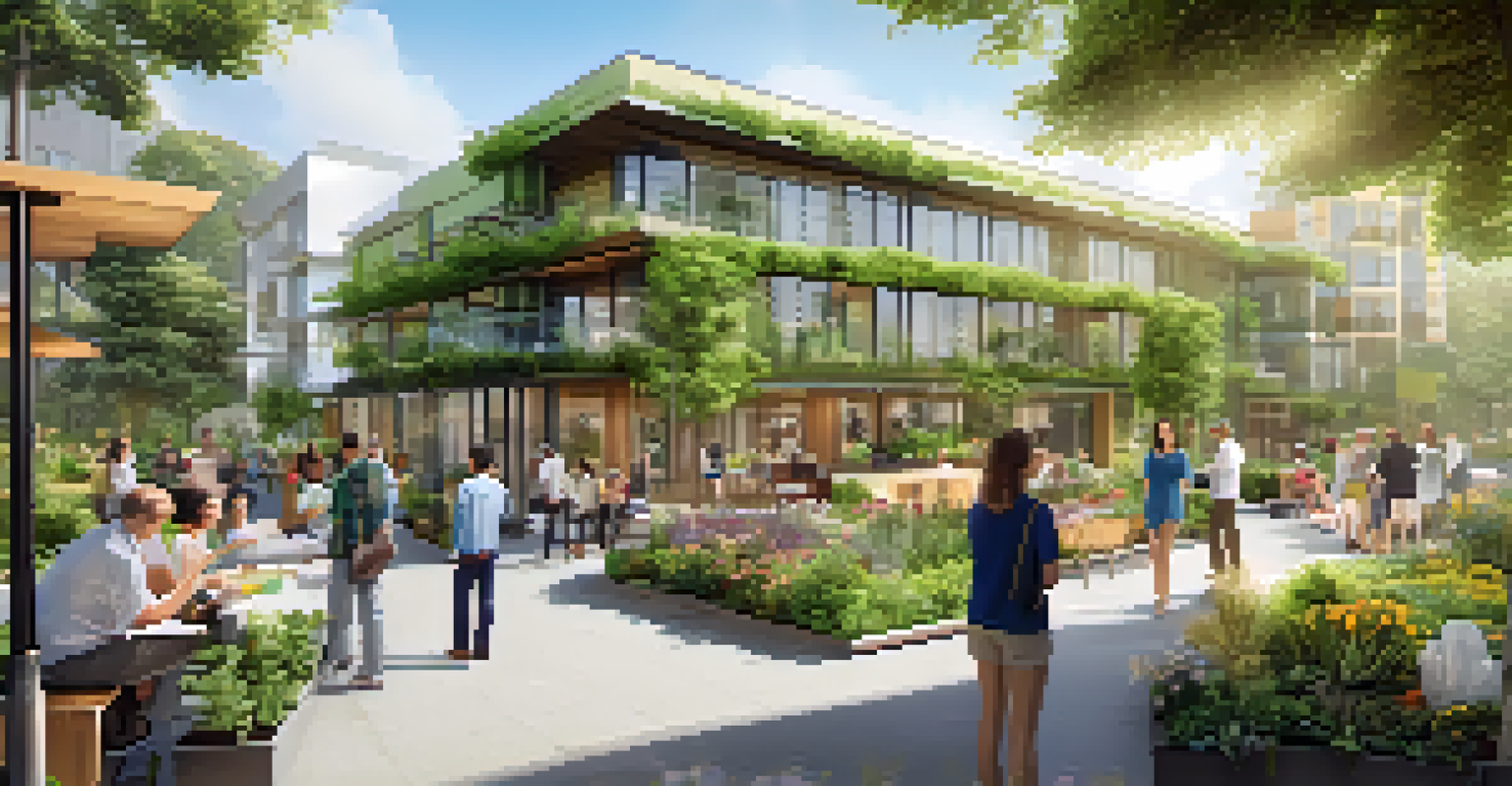Real Estate Investment Opportunities in Developed Nations

Understanding Real Estate Investment Basics
Real estate investment is the purchase of property with the expectation of generating a profit. This can involve residential, commercial, or industrial properties. Investors typically aim for appreciation in property value or rental income as revenue streams.
Real estate is not just about property; it's about the people who live there.
In developed nations, the real estate market is often more stable compared to emerging markets. This stability attracts both local and international investors, offering a sense of security. Understanding the market dynamics is crucial for anyone considering entering this space.
Additionally, real estate can be a hedge against inflation, as property values and rents usually increase over time. This makes it an appealing option for wealth preservation and growth, especially in economically stable regions.
Key Factors Influencing Property Values
Various factors influence property values, including location, market demand, and economic conditions. For instance, properties in urban centers often see higher demand due to job opportunities and amenities. This can lead to increased property values over time.

Another critical factor is the local economy; robust job markets and population growth typically drive up demand for housing. Conversely, economic downturns can lead to decreased property values, highlighting the importance of thorough research before investing.
Real Estate as a Profitable Investment
Investing in real estate can yield profits through property appreciation and rental income.
Understanding these factors can help investors identify lucrative opportunities. For example, areas undergoing revitalization may present undervalued properties with significant growth potential, making them attractive investment spots.
Types of Real Estate Investments to Consider
There are several types of real estate investments, each with its unique benefits and risks. Residential properties, like single-family homes and apartments, are popular for those seeking rental income. They often have lower entry costs compared to commercial properties.
The best investment on Earth is earth.
Commercial real estate, which includes office buildings and retail spaces, typically offers higher returns but may require larger capital investments. These properties often come with longer lease agreements, providing consistent cash flow.
Lastly, real estate investment trusts (REITs) allow individuals to invest in real estate without directly owning property. They can be an excellent option for diversifying a portfolio, providing exposure to different sectors of the real estate market.
Assessing Risks in Real Estate Investment
Like any investment, real estate comes with its share of risks that investors must understand. Market fluctuations can significantly impact property values, potentially leading to losses. It's essential to stay informed about economic indicators and local market trends.
Additionally, property management can be a daunting task for many investors. Issues such as tenant turnover, maintenance, and unexpected repairs can eat into profits. Investing in property management services can help mitigate these challenges but will also reduce overall returns.
Key Factors Impacting Property Value
Location, market demand, and economic conditions are crucial elements that influence property values.
Finally, regulatory changes can also pose risks, particularly in developed nations where zoning laws and property taxes may shift. Investors should remain vigilant and adapt to changes in legislation that could affect their investments.
Emerging Trends in Developed Nations
As technology evolves, so do real estate investment trends. For example, the rise of remote work has led to increased demand for properties in suburban areas, as people seek larger living spaces away from crowded cities. This shift creates new opportunities for investors.
Sustainability is another emerging trend, with many investors looking for eco-friendly properties. Green buildings often attract environmentally conscious tenants and can command higher rents. Investing in sustainable properties may provide long-term benefits and appeal to a growing market.
Finally, the integration of technology in real estate, such as virtual tours and online transactions, is making property buying and selling more accessible. Investors who leverage these tools can enhance their market reach and streamline their investment processes.
Financing Your Real Estate Investment
Financing is a crucial aspect of real estate investment, and there are various options available. Traditional mortgages are common, but investors may also explore alternative financing methods, such as hard money loans or private lenders. Each option comes with its pros and cons, so it's essential to evaluate what fits your situation best.
Leveraging equity from existing properties can be another effective way to finance new investments. This strategy allows investors to tap into their current assets to fund new purchases without needing additional cash upfront. However, it’s important to understand the risks of over-leveraging.
Emerging Trends in Real Estate
Trends like remote work and sustainability are reshaping the real estate market, creating new investment opportunities.
Investors should also consider their creditworthiness, as it can significantly affect loan terms and interest rates. Maintaining a good credit score not only helps secure financing but can also lead to better opportunities in the long run.
Finding the Right Market for Investment
Choosing the right market is pivotal for successful real estate investment. Developed nations often have established markets with ample data and resources available for analysis. Investors should look for regions with strong economic growth, low unemployment rates, and a steady influx of residents.
Additionally, local demographics play a crucial role in determining market viability. Areas with growing populations, especially younger demographics, usually indicate a higher demand for housing, making them ideal for investment.

Lastly, networking with local real estate agents and attending property expos can provide insights into emerging markets. Engaging with local communities can help investors identify trends and opportunities that may not be immediately apparent through data alone.